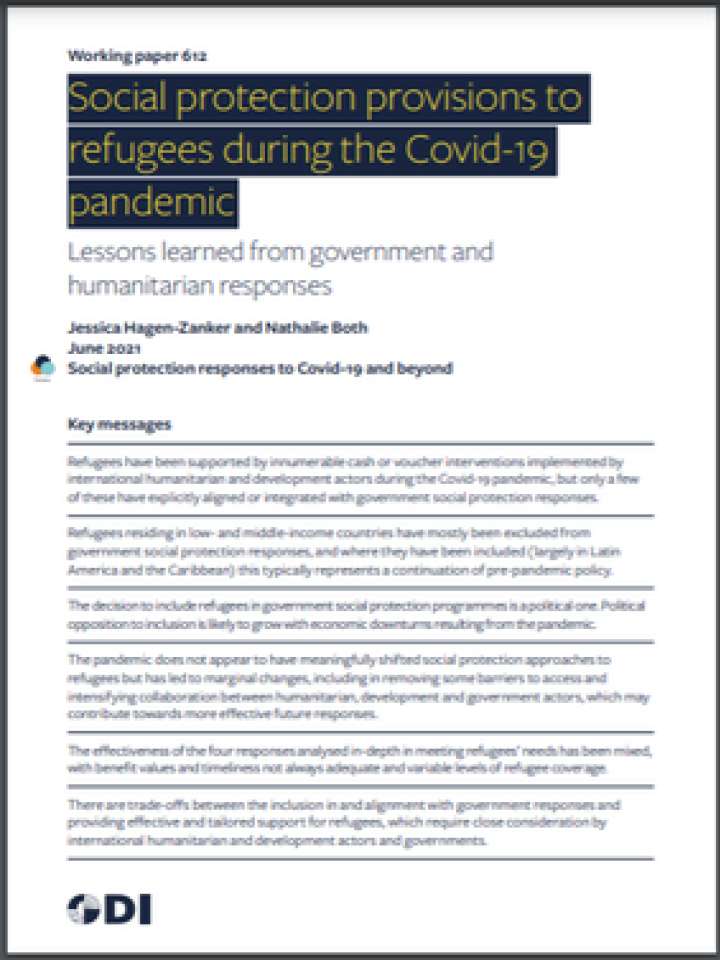Social protection provisions to refugees during the Covid-19 pandemic: lessons learned from government and humanitarian responses
This paper reviews the evidence on the inclusion of refugees in government-led social protection responses to Covid-19 in the Republic of Congo and Colombia and the alignment or integration of international humanitarian and development actors’ cash assistance to refugees and government social protection responses – focusing on Jordan and Pakistan. Refugees have been supported by innumerable cash or voucher interventions implemented by international humanitarian and development actors during the Covid-19 pandemic, but only a few of these have explicitly aligned or integrated with government social protection responses. Refugees residing in low- and middle-income countries have mostly been excluded from government social protection responses, and where they have been included (largely in Latin America and the Caribbean) this typically represents a continuation of pre-pandemic policy.
The paper considers the effectiveness of Covid-19 social protection responses for refugees, emerging lessons and whether the crisis and its response holds potential for a longer-term shift in social protection and humanitarian support to refugees. This paper concludes that the pandemic does not appear to have meaningfully shifted social protection approaches to refugees but has led to marginal changes, including in removing some barriers to access and intensifying collaboration between humanitarian, development and government actors, which may contribute towards more effective future responses. Additionally, there are trade-offs between the inclusion in and alignment with government responses and providing effective and tailored support for refugees, which require close consideration by international humanitarian and development actors and governments.
Explore further
